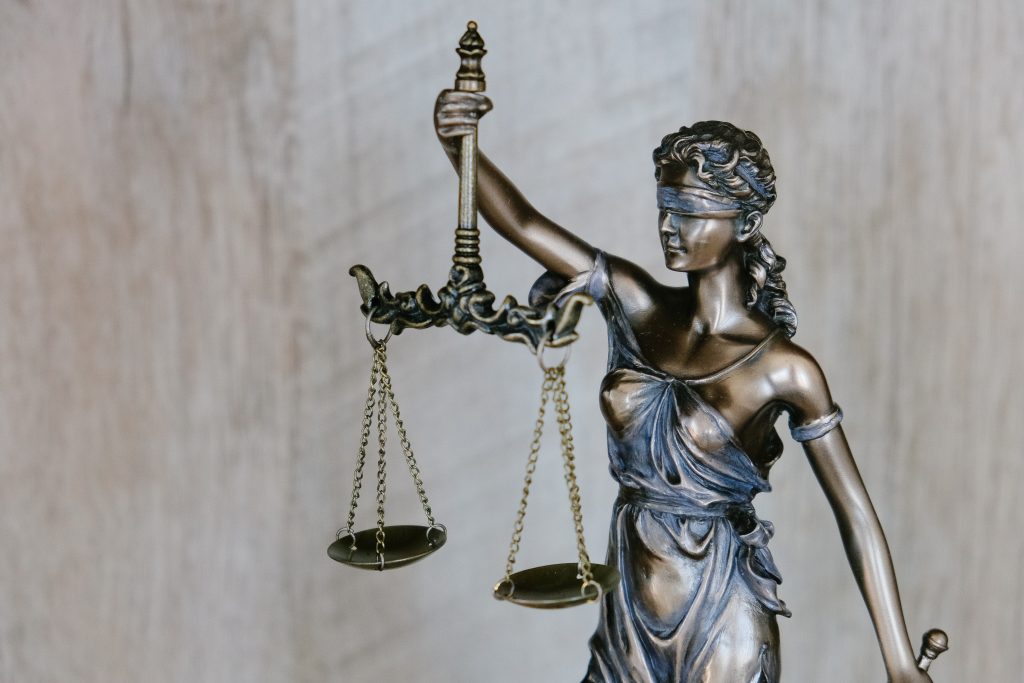is a crucial aspect of the criminal justice system that you’ll learn about in this article. You’ll gain an understanding of what plea bargaining is, how it works, and why it is important for both the prosecution and the defendant. We’ll also discuss the pros and cons of plea bargaining and examine some real-life examples to illustrate its impact. Lastly, we’ll explore the role of the defense attorney in plea negotiations and offer tips for achieving successful plea bargains. By the end of this article, you’ll have a comprehensive understanding of plea bargaining and its significance in criminal cases.
Plea Bargaining

This image is property of images.unsplash.com.
Introduction
Plea bargaining is a vital component of the legal system, allowing for the negotiation and resolution of criminal cases without the need for a trial. It provides defendants with an opportunity to plead guilty to a lesser charge or receive a reduced sentence in exchange for cooperating with the prosecution. This article will explore the definition, types, advantages, and disadvantages of plea bargaining, as well as its history, process, influencing factors, alternatives, and global practices. We will also delve into the critiques of plea bargaining, proposed reforms, and the future of this contentious practice.
What is Plea Bargaining?
Definition of plea bargaining
Plea bargaining refers to the negotiation process between the prosecution and the defense in a criminal case, where the defendant agrees to plead guilty or no contest to specific charges in exchange for concessions from the prosecution. It is a means of resolving criminal cases without the need for a full trial, saving time and resources for both the court and the parties involved.
Importance of plea bargaining in the legal system
Plea bargaining plays a crucial role in the legal system by promoting efficiency and ensuring the timely resolution of cases. It helps alleviate the burden on crowded court dockets, enabling the judiciary to focus on more complex and high-profile trials. Additionally, plea bargaining encourages cooperation between the prosecution and the defense, facilitating the exchange of information and evidence that may aid in the pursuit of justice.
Types of Plea Bargaining
Charge bargaining
Charge bargaining involves negotiations between the prosecution and the defense to reduce the severity of the charges against the defendant. For example, a defendant originally charged with first-degree murder may agree to plead guilty to a lesser charge of manslaughter. By doing so, the defendant may receive a lighter sentence.
Count bargaining
In count bargaining, the prosecution agrees to dismiss or reduce some of the criminal charges against the defendant in exchange for a guilty plea to the remaining charges. This allows the defendant to avoid the potential consequences of all the original charges they were facing.
Sentence bargaining
Sentence bargaining entails the negotiation of a reduced sentence for the defendant in exchange for a guilty plea. The prosecution may offer a lesser punishment, such as a shorter prison term or probation, in return for the defendant’s admission of guilt.
Advantages of Plea Bargaining
Reduced charges
One of the primary advantages of plea bargaining is the potential for reduced charges. By negotiating with the prosecution, defendants may be able to secure a plea agreement that lessens the severity of the crimes they are charged with. This can result in lighter sentences and the avoidance of more serious criminal records.
Reduced sentence
Plea bargaining also offers defendants the opportunity to receive shorter or more lenient sentences than they would face if convicted at trial. This can be particularly beneficial for individuals who have limited resources or face evidence that may be challenging to overcome in court.
Legal certainty
By entering into a plea agreement, defendants can attain a level of legal certainty. Instead of facing the uncertainty and risks of a trial, they can gain a predictable outcome through negotiation. This allows them to make informed decisions about their future and potential consequences.
Avoiding trial
For defendants, the prospect of a trial can be daunting and emotionally draining. By opting for plea bargaining, they can avoid the stress and uncertainty associated with courtroom proceedings. Plea bargaining offers a way to resolve the case outside of the public eye, preserving privacy and minimizing emotional distress.
Efficiency in the legal system
Plea bargaining plays an essential role in managing the caseload of the legal system. By resolving cases without the need for trials, courts can allocate their resources more effectively, ensuring that justice is served swiftly and efficiently. This allows for the timely resolution of cases, reducing the strain on the judiciary and enabling them to focus on more complex matters.

This image is property of images.unsplash.com.
Disadvantages of Plea Bargaining
Potential coercion
One of the main criticisms of plea bargaining is the potential for coercion. The pressure on defendants to accept a plea agreement, even when they may be innocent, can be immense. The fear of facing harsher penalties at trial or the financial burden of mounting a defense may lead defendants to accept deals that do not truly reflect their culpability.
Lack of transparency
Plea bargaining often occurs behind closed doors, without the same level of transparency as a trial. This lack of transparency can raise concerns about the fairness and integrity of the process. Critics argue that the public may not fully understand the reasoning behind the negotiated agreements, leading to a loss of confidence in the justice system.
Disproportionate outcomes
Plea bargaining can result in disparate outcomes for defendants, depending on their bargaining power, legal representation, or personal circumstances. Some may receive favorable deals, resulting in lenient sentences or reduced charges, while others may face disproportionately harsh penalties. This inconsistency raises questions about the fairness and equality of the plea bargaining process.
Undermining the right to a fair trial
Plea bargaining is seen by some as an infringement on an individual’s right to a fair trial, as guaranteed by the legal system. By pleading guilty to avoid a trial, defendants may forego the opportunity to present their case in court, challenge evidence, or cross-examine witnesses. This raises concerns that innocent individuals may be pressured into accepting plea deals just to avoid the risks associated with a trial.
History of Plea Bargaining
Origin and development
The practice of plea bargaining can be traced back to ancient Roman law, where defendants had the option to admit guilt and receive more lenient punishments. However, plea bargaining as we know it today was popularized in the United States during the early 19th century. It gained prominence as a means of reducing the caseload of overcrowded courts and fostering the efficient administration of justice.
Landmark cases
Throughout history, certain landmark cases have shaped the landscape of plea bargaining. For instance, the 1978 “Bordenkircher v. Hayes” case established that prosecutors could threaten defendants with more severe charges if they refused to accept a plea deal. This ruling had significant implications for the fairness and integrity of the plea bargaining process.

This image is property of images.unsplash.com.
The Process of Plea Bargaining
Initiation of plea bargaining
Plea bargaining can be initiated at various stages of the criminal justice process. It may occur shortly after the defendant’s arrest, during pre-trial negotiations, or even after the trial has begun. The prosecution and defense communicate and exchange offers to explore potential plea agreements.
Negotiation and agreement
Once the plea bargaining process is initiated, the prosecution and defense engage in negotiations to reach a mutually acceptable agreement. Both parties assess the strength of the evidence, potential defenses, and potential outcomes if the case goes to trial. This negotiation process may involve several rounds of discussion and compromise before a final plea agreement is reached.
Court approval
After the prosecution and the defense have reached a plea agreement, it must be presented to the court for approval. The judge carefully reviews the terms of the agreement to ensure fairness and legality. If the judge determines that the plea agreement is appropriate, they will accept it and proceed with sentencing accordingly.
Factors Influencing Plea Bargaining
Strength of evidence
The strength of the evidence against the defendant is a crucial factor in the plea bargaining process. If the evidence is strong, the prosecution may be less inclined to offer favorable plea agreements, as they believe they have a high chance of obtaining a conviction at trial. Conversely, weaker evidence may motivate the prosecution to make more lenient offers to secure a conviction.
Criminal record
A defendant’s criminal record can significantly impact the plea bargaining process. Prior convictions or a history of engaging in criminal activity can influence prosecutors to offer more severe charges or sentence recommendations. Defendants with clean records or minimal criminal involvement may be more likely to receive favorable plea agreements.
Public opinion
Public opinion and the perceived seriousness of the crime at hand can influence plea bargaining outcomes. In high-profile cases that have captured media attention, prosecutors may feel pressured to obtain more substantial penalties to satisfy public demands for justice. On the other hand, public perceptions of the defendant’s character or circumstances may garner sympathy and lead to more lenient plea bargains.
Resources available to the prosecution
The resources available to the prosecution, such as the availability of witnesses, the costs associated with a trial, and the workload of the prosecutor’s office, can also impact plea bargaining. Understaffed or underfunded prosecutors may be more likely to offer favorable deals to reduce their workload or allocate limited resources more efficiently.
Controversial Cases and Ethical Considerations
High-profile cases
High-profile cases often raise ethical concerns regarding plea bargaining. The public’s expectation of justice can lead to intense scrutiny of the negotiated outcomes, with individuals questioning the fairness and appropriateness of the plea agreements reached. Balancing public interests with the rights of the defendant is a significant challenge in these types of cases.
Ethical concerns in plea bargaining
Plea bargaining raises ethical considerations for both prosecutors and defense attorneys. Prosecutors must balance their duty to seek justice with their responsibility to victims and the community, ensuring that plea agreements reflect the severity of the crime while avoiding unnecessary harm to defendants. Defense attorneys, on the other hand, must advocate for their clients’ best interests, ensuring they understand the implications of any plea agreement and are not coerced into accepting an unfavorable deal.
Alternatives to Plea Bargaining
Trial by jury
One alternative to plea bargaining is the traditional trial by jury. This involves presenting evidence and arguments before a jury, allowing them to determine the defendant’s guilt or innocence. While trials can be time-consuming and costly, they provide an opportunity for a full examination of the evidence and a fair and unbiased decision-making process.
Deferred prosecution agreements
Deferred prosecution agreements (DPAs) offer an alternative to traditional plea bargaining, particularly in cases involving corporations or organizations. Under a DPA, prosecutors agree to suspend criminal charges against the defendant for a specified period. During this time, the defendant must comply with certain conditions, such as paying fines, cooperating with investigations, or implementing compliance programs. If the defendant meets these requirements, the charges are dropped.
Restorative justice
Restorative justice is an alternative approach that focuses on repairing the harm caused by the crime rather than solely on punishment. It involves the participation of victims, offenders, and the community in a process of healing and reconciliation. Restorative justice seeks to address the underlying causes of criminal behavior, promote accountability, and restore trust and relationships.
Plea Bargaining Around the World
Different approaches in various countries
Plea bargaining practices vary significantly around the world. In some countries, such as the United States, plea bargaining is an integral part of the justice system and accounts for the majority of criminal cases. In contrast, other countries, such as Germany and Japan, have more limited or restricted use of plea bargaining. Cultural, legal, and historical factors contribute to these disparities.
Comparison of plea bargaining practices
Studying and comparing the plea bargaining practices of different countries can provide valuable insights into the strengths and weaknesses of the system. This analysis can lead to the adoption of best practices and the evaluation of potential reforms. Understanding the variations in approach helps ensure that plea bargaining is used appropriately and ethically in different jurisdictions.
Critiques of Plea Bargaining
Overreliance on pleas
One of the main critiques of plea bargaining is the overreliance on guilty pleas to resolve cases. Critics argue that this leads to a lack of accountability and a diminished pursuit of justice. They contend that defendants may feel compelled to plead guilty, even when they may have valid defenses, due to the pressure to accept plea offers.
Inequality in bargaining power
There is a concern that plea bargaining perpetuates inequality in the criminal justice system. Defendants with limited resources or ineffective legal representation may not have the same bargaining power as those who can afford high-quality defense attorneys. This imbalance can result in unequal plea agreements and disparate outcomes for individuals facing similar charges.
Lack of judicial oversight
As plea bargaining occurs outside the formal trial process, there is limited judicial oversight. Some argue that this lack of judicial scrutiny and review can lead to unjust outcomes, as judges may not have the opportunity to assess the strength of the evidence or any potential mitigating factors. The absence of judicial oversight raises concerns about the fairness and integrity of the plea bargaining process.
Reform and Future of Plea Bargaining
Proposed reforms
To address the concerns surrounding plea bargaining, various reforms have been proposed. These include increased transparency, more extensive judicial oversight, mandatory disclosure of evidence to defendants, and stricter guidelines for prosecutors when making plea offers. By implementing these reforms, stakeholders hope to enhance the fairness, consistency, and accountability of the plea bargaining process.
Impact of technology on plea bargaining
Advancements in technology are also shaping the future of plea bargaining. The use of virtual courtrooms, video conferencing, and electronic document management systems can streamline the negotiation process and facilitate efficient communication between the prosecution, defense, and the court. Technology also enables the effective storage and retrieval of case-related information, ensuring that plea agreements are easily accessible and properly recorded.
Advancements in alternative dispute resolution
Alternative dispute resolution (ADR) methods, such as mediation and arbitration, are becoming increasingly popular in resolving criminal cases. These approaches focus on facilitating communication and negotiation between the parties involved, allowing for the voluntary resolution of conflicts. ADR can potentially supplement or serve as an alternative to plea bargaining, promoting restorative justice principles and reducing the reliance on traditional court processes.
Conclusion
Plea bargaining is a complex and controversial practice that shapes the criminal justice system’s landscape worldwide. While it offers efficiency and the potential for favorable outcomes for defendants, it also raises ethical concerns and questions about the fairness and transparency of the process. As the legal community continues to evaluate and propose reforms, it is crucial to strike a balance between efficiency and accountability, ensuring that plea bargaining serves the interests of justice while protecting the rights of defendants.



